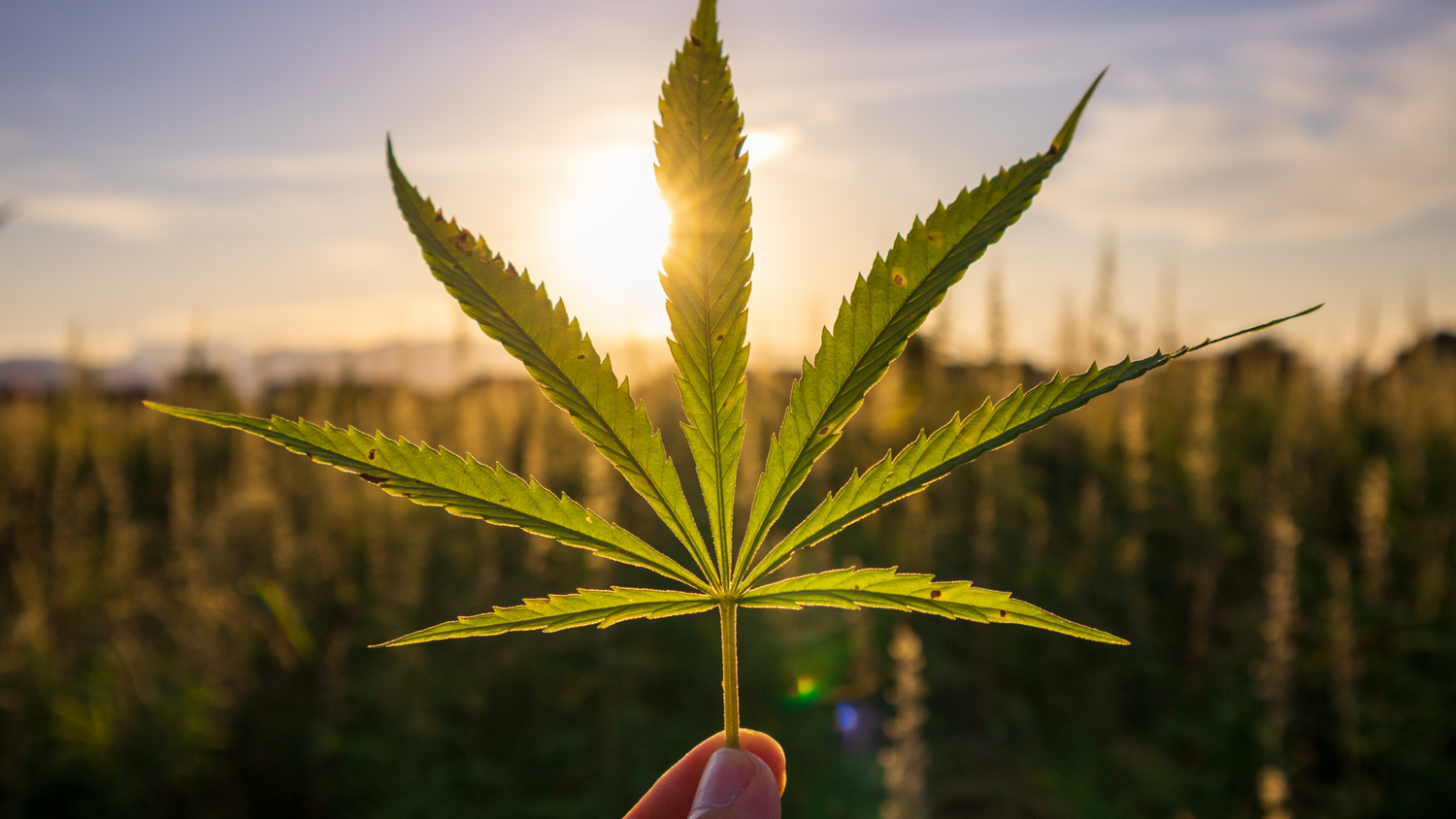Written by: Dr. Diana Rangaves, Google Scholar, holds a Doctorate from the University of California, specializes in pharmacotherapy management, and founded ClinicalConsultantServices.com and DianaRangaves.com
---
In the midst of the pandemic, people have become more aware and concerned about their immune health. In a time like this, the use of CBD for immunity has gained more perspective than ever.
So, if you have been asking yourself, “does CBD help the immune system?” you’re not alone. Cannabis and the immune system have been more prevalent in the news these days. That’s why this subject is worth exploring. Do you want to find out about the link between cannabis and the immune system? If yes, keep reading to know if cannabis suppresses the immune system or boosts it.
What is the immune system?
Before we look into CBD's use for immunity, let's first understand the immune system.
Your immune system is the natural mechanism fighting against any external risks that our body faces. Whether it is a germ, an infection, or a virus, your immune system is there to help fight it. Of course, the stronger your immunity is, the higher the chances are that you’ll win against the health risk.
The immune system comprises white blood cells. Two types of white blood cells play a significant role in immunity: lymphocytes and phagocytes. The lymphocytes detect and fight against the toxins. They’re also known as T-cells and B-cells. The phagocytes work to neutralize the toxic effect of these harmful invaders by absorbing them. This keeps the invasive toxins from spreading throughout or growing in your body.
How CBD affects immunity
Now, the real question is, does CBD help the immune system?
CBD is a molecule extracted from cannabis. Though there is not extensive research on the health benefits of CBD, the future of CBD does seem to be promising. The FDA has only approved Epidiolex (containing CBD in oral form) for the treatment of a rare disease. That’s why we cannot say much about the legalization of CBD. The potential positive effects of CBD on the immune system are under investigation.
The FDA requires numerous clinical trials before considering medical approval for any supplement. Researchers are still finding out if CBD is an immunosuppressant.
CBD oil and the immune system, in particular, are the subjects researchers are focusing on. What it does, for the most part, is it acts as a CBD immunosuppressant. This helps with maintaining well-being.
The way a CBD immunosuppressant works is by keeping the internal fighting system at bay. Chronic pain and autoimmune diseases trigger the immune system to be in a constant state of stress against a detected harmful toxin. What this does is increase inflammation and put the person in a continuous state of pain.
CBD work to suppress the immune system to give it some rest. It prevents your immune system from overworking itself without any benefit. Therefore, this might help maintain immunity. When the immune system is distracted by chronic pain, it loses strength to fight against other health issues. CBD oil may repurpose the immune system to act more efficiently, which is healthier for the patient.
Meanwhile, excessive stress can lead to low energy. When CBD suppresses the immune system, it acts as a substance to enhance bodily functions. While doing so, CBD or CBD oil may lessen the excessive production of lymphocytes and secretion of cytokines. This is great for people who are looking for natural ways to boost energy.
This isn’t the only way of linking cannabis and the immune system. CBD oil and the immune system might act together as efficiency boosters. On top of that, it might encourage the death of harmful cells and keep them from reproducing rapidly. The phagocytes absorb the harmful invaders in your body. CBD appears to encourage your immune system to continue this function to minimize the spread of toxic cell growth in your body.

Building tolerance
One primacy concern that people have when using CBD for immunity is its effect on your consciousness.
CBD is derived from the cannabis plant, and is not known to have psychoactive affects. Moreover, CBD is usually consumed in the form of an oil or some other diluted product. These products are manufactured for medical purposes.
Since CBD is diluted with a carrier oil, the concentration consumed is typically pretty minimal for each dose, and dosing is intended to be gradual. However, you should consult your healthcare practitioner before starting your first dose of CBD for immunity.
The question
So, does CBD help the immune system? Researchers are still making efforts to answer this question. However, CBD for immunity can be a great option for those who are looking for enhancing their productivity levels. CBD oil may ease the discomfort, and work as a soothing agent to maintaining your health. This might also lift moods.
CBD is under investigation for many other uses in addition to its function as an immunosuppressant. Therefore, under the supervision of your health care practitioner, make sure you proceed safely and patiently.
Discovering your optimal dose of CBD takes time and is not one size fits all.
If you're someone who is looking to calm the immune system responses, CBD products are something you may wish to add to your routine.
The Verdict: CBD and Immunosuppressants
Now that CBD is receiving the scientific attention it deserves, a growing body of research is showing that CBD is both an immunosuppressant and anti-inflammatory. That means CBD may reduce inflammation, promote cellular regeneration and prohibit rapid cellular growth, all important aspects of a healthy immune system. Furthermore, CBD has been shown to suppress the function of cytokines, chemokines and T cells, central components of the body's immune defense capabilities.
But what about CBD as a treatment? In recent years, CBD and immunosuppressants have been linked, and today many suggest CBD as a viable treatment for some autoimmune disorders. Since autoimmune diseases are basically the result of a malfunctioning immune system, where the body's immune system actually starts attacking healthy cells, tissues and organs, a substantial weakening of the body is often seen, which can lead to a loss of mobility, cognition and other issues. This is seen with common autoimmune diseases such as multiple sclerosis, rheumatoid arthritis and psoriasis.
Because inflammation is such a core component of autoimmune diseases, CBD, as an immunosuppressant and anti-inflammatory, is an ideal form of non-invasive treatment. Unlike THC, CBD's close cousin that is responsible for the "high" feeling when smoking or otherwise consuming marijuana, or traditional drugs that may leave patients feeling out-of-it, lethargic or otherwise burdened, CBD side effects are rare, and even large doses aren't associated with problematic effects as CBD poses no change in cognition. In the case of hyperactive immune systems that may start to attack themselves, CBD can also be helpful and assist the body in achieving equilibrium.
However, if you currently take any immunosuppressive medications such as tacrolimus, which is commonly used to prevent organ rejection in patients with recent organ transplants, you may want to consult your doctor or a healthcare professional before taking CBD. For tacrolimus and other similar drugs, CBD actually interferes with the body's ability to metabolize the drug, which could jeopardize recuperation following a successful transplant.
CBD and other immunosuppressants may also be problematic, but more research is needed. Preliminary studies have shown that CBD may have a similar effect to grapefruit juice, which results in a common impairment of the body's ability to metabolize drugs, also raising serum levels of certain medications in the body. It hinges on cytochrome P450, which is responsible for the metabolism of tacrolimus and other medications, and CBD seems to interrupt that somewhat.
For those that take other drugs that are metabolized by cytochrome P450, such as psychotropic medications that help fight depression, bipolar disorder, anxiety and ADHD, CBD can actually have a reverse effect, minimizing the drug's effectiveness rather than enhancing it.
Because of this, most doctors warn that mixing CBD with prescription drugs can be problematic and have unintended consequences, so it's best to discuss your options with your doctor before incorporating CBD into any health regimen. Only your health care provider or doctor will have a complete health picture, including any medications that you're currently taking that may be negatively affected by CBD.
That said, the therapeutic benefits of CBD are numerous, and CBD-based medications have actually been approved by the FDA for treatment, such as with the case of the CBD medication Epidiolex, which was approved in 2018.
So, is CBD immunosuppressive? While the answer is yes, science and medicine still have a lot to learn about the true interactions and effects of CBD with other medications and drugs. Even herbal and so-called natural products can have unintended side effects and interactions, and only your doctor can tell you if you should avoid CBD based on your existing medications.
---
If you are interested in the healing properties of CBD, there's no better place to start than pure or full-spectrum CBD oil products. Uses are varied, but many patients enjoy the benefit of CBD as a reliable immunosuppressant, helping to fight inflammation and other issues associated with injuries, diseases and disorders.





